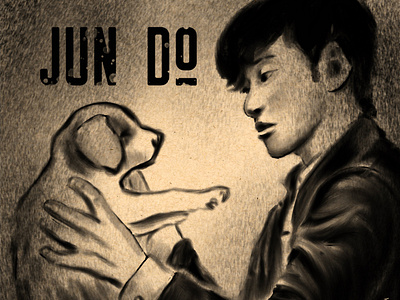Pak Jun Do
𝘳𝘰𝘮 The Orphan Master's Son 𝘣𝘺 𝘈𝘥𝘢𝘮 𝘑𝘰𝘩𝘯𝘴𝘰𝘯
𝘋𝘢𝘺 13 𝘰𝘧 𝘧𝘢𝘷𝘰𝘳𝘪𝘵𝘦 𝘣𝘰𝘰𝘬 𝘤𝘩𝘢𝘳𝘢𝘤𝘵𝘦𝘳𝘴
Under constant threat of death in Kim Jong-il's North Korea, everyone in the novel works to tell the best lies they can to save their skins. The lies are often ludicrous, but the characters just need to demonstrate their willingness to chuck out the truth and pledge allegiance to whatever narrative would most please the Supreme Leader. Yet Jun Do's lies take on a life of their own, and he goes from soldier to kidnapper to surveillance officer to unwitting diplomat to disgraced miner to fake top general. His family is stolen from him when he's a child. Eventually he steals a family of his own, one he's willing to die for.
Though Johnson shows many side effects of tyranny within the book (poverty, bribery, etc.), the one he lingers over is how personal identity is suppressed in the service of the dictator, because only one voice can be the Supreme Voice. But with the ultimate sacrifice, Jun Do does write his own story, and his first step toward becoming his own person happens when a Texas senator's wife gives him a Catahoula puppy.
See the full picture here: https://www.instagram.com/p/CGYpZruhQ7v/








